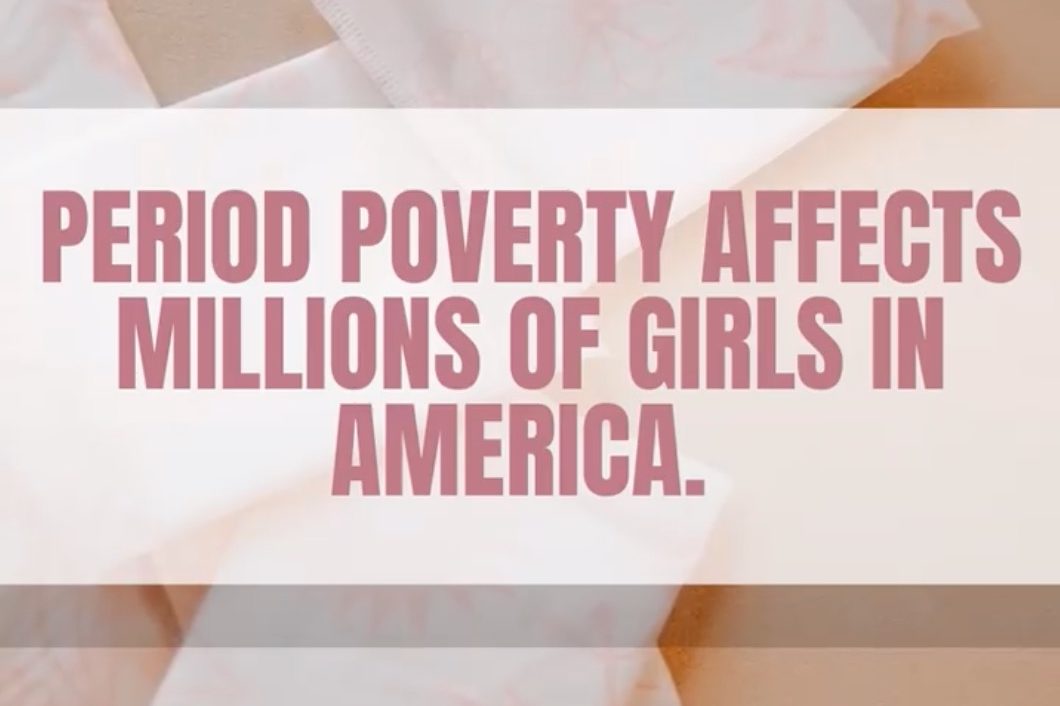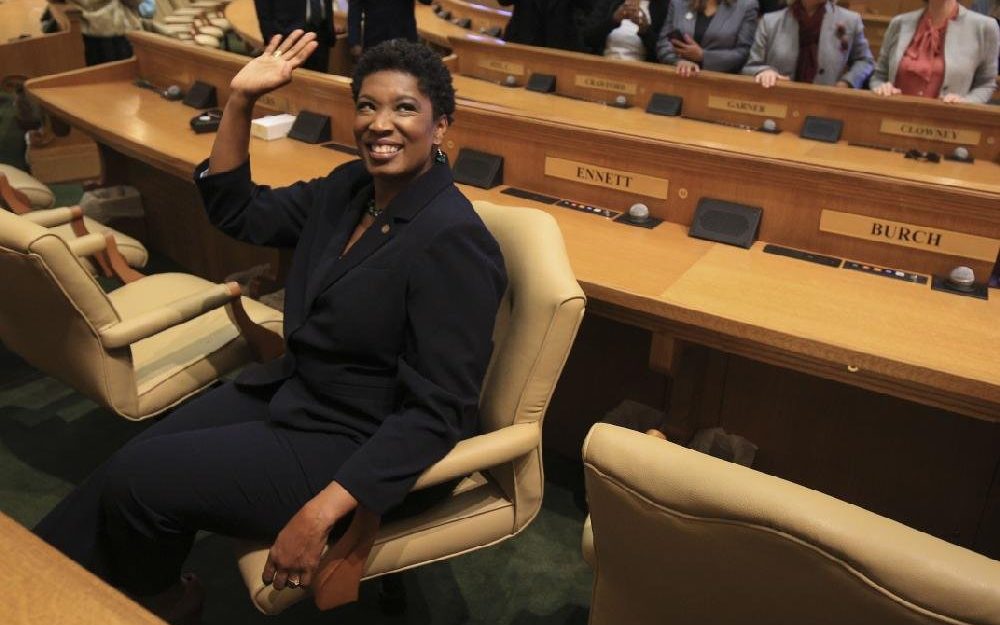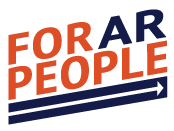
Arkansas’ poverty rate is one of the highest in the nation. According to Talk Poverty, our state ranks 47 overall, and 48 for children experiencing poverty. Many of those children are young girls, and those girls are living through period poverty. But what is period poverty?
Studies show that one in five teens will miss class due to lack of mensural products, and one in ten women in university are struggling to afford these products. Additionally, millions more unexpectedly start periods without access to products. Lack of access to period products means women and young girls will resort to using unconventional items, such as newspapers, toilet paper, rags, etc.
Luckily, Arkansas is taking the first step to end period poverty in our state. On March 3, Representative Denise Ennett introduced House Bill 1611 to the Arkansas Legislature. The bill proposes public schools, open enrollment public charter schools, and public universities be allowed to use funding to purchase and provide feminine hygiene products to students in grades 6-12. It has passed and was signed into law.
“We’ve all been there…and been embarrassed,” Rep. Ennett says on the topic of menstrual cycles during school without access to proper feminine products. “There’s schools in Central Arkansas that don’t have a steady supply of [feminine hygiene products],” Rep. Ennett said. “That made me more intrigued about the problem. That was kind of the starting point for the [bill].”
In addition, she is teaming up with Katie Clark–founder and organizer of the Arkansas Period Poverty Project–to raise awareness about period poverty.
“The Arkansas Period Project aims to ending period poverty through donations, education, advocacy, and legislation,” Clark says. “[I emailed] all of the principals at public middle schools and high schools in Little Rock and North Little Rock asking if they have students who face issues with period poverty…and I got a lot of yes’s.”
Ending Period Poverty in Arkansas with Little to no Opposition

Although period poverty is a concern to school principals, some lawmakers and public school administrators have concerns about what the bill’s consequences will be, but not many.
“I’ve had [comments] from colleagues saying that we don’t need legislation for [feminine products] because there is money out there for that, but there is not. People don’t know that they can [use] federal and state funds to provide products for their students” Rep. Ennett says. “I had another question about pads getting sold if [schools] get too many. There’s some disconnect there.”
Rep. Ennett’s main point: using funding for feminine hygiene products in school is not mandatory. The bill ensures that under stocked schools have the ability to provide adequate feminine products to students.
Moreover, the bill is a response to the lack of communication between administrations, nurses offices, and students about where period products can be purchased and available resources. The bill passed the house with a vote of 92 to 0 and the senate with a vote of 34 to 0. Not a single member voted against the bill.
“Over 50% of women populate Arkansas. We need to start our girls at a younger age feeling good about themselves,” Rep. Ennett says. “This is just one step out of many to help girls be empowered and not be embarrassed by their periods at school.”
Who is Rep. Denise Ennett?

The following Q&A come from a recent interview with Representative Denise Ennett, Katie Clark (founder of the Arkansas Period Project), the authors of this article, and Gennie Hirschy (Director of For AR People).
Q: What was your occupation before you were elected to office?
A: I would say a community advocate. I have twins, [Cameron] is the one who has autism. So that kind of started me down this path. I started going to the Capitol and to different things that related to his disability. I testified at different meetings. Cameron gave me that push to go out there and put myself out there.
From there, I started joining neighborhood associations–I was the president of a Neighborhood Association–and joined different boards and commissions with the city and state. You just start little and build up.
Q: What does it mean to be a strong woman?
A: A strong woman is being able to tap into resources. Being able to say, ‘Can you help me on this?’ Knowing that you can’t know everything…I view my grandmother who had three kids–a single mom who put her three kids through Catholic school [as a strong woman]. I think about my great aunt who worked for the Stevens and clean houses, who died on a deathbed writing checks. Those were strong women. Me, I’m the recipient of all that.
Q: What is your support system like?
A: I have a good support system. My mom picks up my kids in the afternoon. And my husband, he’s super supportive–he’s that steady peace that I need to keep on going. I have much love for my husband…I work with some amazing women, white and Black, and so I’m very lucky to be where I’m at.
Q: What is your experience like being a Black woman Representative in the south?
A: Being a Black woman in the state legislature has been interesting. I live in an urban area, in Little Rock. So, it’s about 50/50 almost split Black and white and most of my district is Black, so that is not a problem.
But there’s a hundred members [in the legislature] and four Black women– me, Representative Scott, Representative Flowers, and Representative Springer. It can be intimidating sometimes. Some very nasty comments were made by a fellow colleague when debating the SB6 bill and the abortion bill. In his testimony, he mentioned nooses and very derogatory things…one thing about Black people…we know there are people out there that don’t like us.
We internalize that and we just keep going. It’s sad to say, but I just put on a smile and keep on going. I still have to work with my colleagues who maybe feel a certain way about Black people. I get up everyday, put on my lipstick, and go to the Capitol and do the work that people elected me to do. Other than that, I’ve been supported. It hasn’t been bad at all.
“I’m not a lawyer, I’m not a realtor. I don’t have a big fancy job–I do have, you know, some degrees. I was just a woman who wanted better for her son, and that’s why I went to the Capitol.”
– Rep. Denise Ennett
Q: Can you describe the process you went through with campaigning?
A: In 2019, the guy who previously held my seat, Charles White, vacated. He joined Mayor Scott’s team as his Chief of staff, and had one year left in his term. So, it was a special election. There were four men running for the same seat and people kept telling me, ‘Denise, you know you need to run for this seat.’ I really wanted to do this, but in my mind I’m like, ‘I can’t do this’. I have no money. I said, ‘who wanted to listen to me talk about anything’, you know? I didn’t think I was polished enough, and I’m still not polished enough.
I had a runoff. Then, I had another election… and I won. I raised the most money–over $40,000 the first two elections. In 2020, I ran for a primary for the regular term. For nine months I was in continual campaign mode. I say all that to say, this is possible.
Q: What comes next?
A: In the future, having pads in with the packs that kids take home within the week..you could get the pads at school, but what about the kids who don’t have them at home? [Katie: We want to make sure it’s included in SNAP and WIC].
Rep. Denise Ennett plans to bring equitable access to resources that are necessary for all Arkansans. She is hard-working and dedicated to improving the lives of Arkansans. Thank you Rep. Denise Ennett for this amazing bill!
For more information on period poverty in Arkansas, check out the Arkansas Period Poverty Project’s facebook page.



